Groupe Renault, Atos, DassaultSystemes, STMicroelectronics And Thales Join Forces To Create The ‘Software Republique’
- By MT Bureau
- April 14, 2021
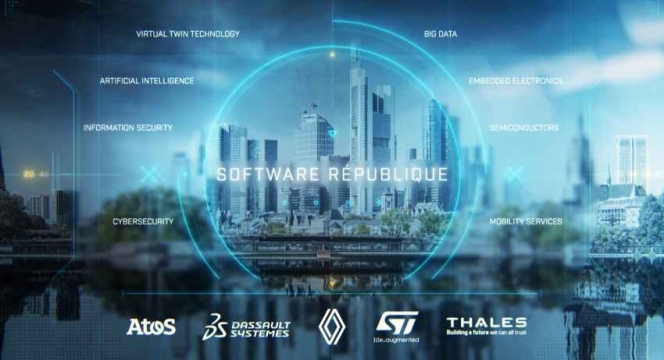
The chief executives of Groupe Renault, Atos, DassaultSystemes, STMicroelectronics and Thales today announced their intention to join forces to create the Software Republique, a new open ecosystem for innovation in intelligent mobility.
The joint announcement was made by Elie Girard, Bernard Charles, Luca de Meo, Jean-Marc Chery and Patrice Caine, respectively the chief executives of Atos, Dassault Systemes, Groupe Renault, STMicroelectronics and Thales.
European sovereignty was the binding force that brought together these five leaders in the automotive and technology fields with an intention of pooling their complementary expertise to develop and market together systems and software to provide an enriched and sustainable mobility offer for cities, regions, businesses and citizens. Artificial intelligence, cybersecurity, connectivity, embedded electronics and virtual twin technology will contribute to these new products and services
According to the Boston Consulting Group, the global mobility market will grow by 60 percent by 2035 to reach 11,000 billion euros (approx. Rs 9,82,46,000 crore). This growth is mainly driven by the emergence of technological disruptions – electric vehicles, new components, new after-sales services and other value-added services – whose share will increase from 5 percent to 45 percent of the global mobility market. With major industrial players on other continents already positioning themselves to develop many of these new technologies through enhanced integration strategies, the founding members of the Software Republique expressed the urgency for France and Europe to collectively build a sustainable ecosystem that aims to ensure their sovereignty in this field.
Three main areas of cooperation have been identified by the consortium. They are:
- Intelligent systems to facilitate secure connectivity between the vehicle and its digital and physical environment.
- Simulation and data management systems to optimise flows for territories and companies.
- Energy ecosystem to simplify the charging experience.
In practical scenario, this would translate into auto-recognition of e-vehicles to facilitate charging without any need for user intervention when connected to a compatible charging point and enabling public authorities to simulate and implement mobility scenarios, such as emergency management, events, etc. Besides enabling consumers to select the best means of mobility according to time, comfort or energy management, this would also enable operators to enrich their services and urban planners to better anticipate land use planning.
This open innovation ecosystem will welcome new members and develop open collaborations. The Software Republique will also seek to create an investment fund to finance the most promising start-ups and an incubator to host start-ups in the field of smart mobility technologies, where they will have access to a collaborative virtual development and experimentation environment, and mentoring through a value network. For the launch of the ecosystem for start-ups and universities, the partners of the Software Republique plan to organise a data challenge to contribute to the development of the technologies for the mobility of tomorrow: electric, connected and autonomous.
Luca de Meo, Chief Executive Officer of Groupe Renault, said,"In the new mobility value chain, on-board intelligence systems are the new driving force, where all research and investment are now concentrated. Faced with this technological challenge, we are choosing to play collectively and openly. There will be no centre of gravity, the value of each will be multiplied by others. The combined expertise in cybersecurity, microelectronics, energy and data management will enable us to develop unique, cutting-edge solutions for low-carbon, shared, and responsible mobility, made in Europe."
Bernard Charles, Vice-Chairman and Chief Executive Officer of DassaultSystemes, added, "Far beyond the automotive sector, it is a question of thinking in terms of use - mobility offering a work and leisure environment that is part of a sustainable economy. This experience economy goes hand in hand with an Industry Renaissance worldwide: the new mobility economy will be organised into new, collaborative value networks based on digital platforms. The Software Republique is thus a multi-industry and multidisciplinary ecosystem that aims to accelerate innovation and grow the driving forces of tomorrow. To achieve this, it will rely on the collaborative virtual environment provided by DassaultSystemes’ 3DEXPERIENCE platform and on virtual twin experiences. It will also benefit from the 3DEXPERIENCE Lab start-up accelerator." (MT)
ZF, BMW Sign Long-Term Supply Agreement For Drive Technologies
- By MT Bureau
- February 03, 2026
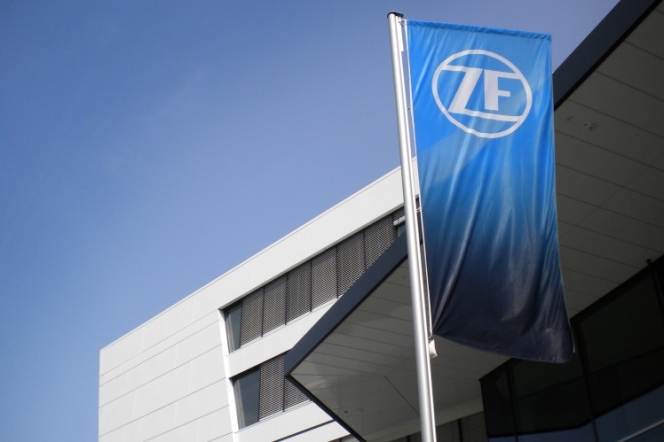
German tier 1 supplier ZF Friedrichshafen and the BMW Group have entered into a long-term supply agreement for passenger car drive systems. The contract, valued at several billion euros, extends until the late 2030s.
The agreement focuses on the supply and continued development of the 8-speed automatic transmission (8HP). The partners aim to support low-emission mobility and maintain technological flexibility during the industry transition.
A central component of the partnership is the technical evolution of the 8HP transmission kit to meet the requirements of electrified drives. The development will focus on increasing efficiency and performance for future vehicle concepts.
Mathias Miedreich, CEO of ZF, said, “Together with BMW, we are sending a strong signal for innovation, efficiency, and sustainability in an industry undergoing dynamic change. This agreement highlights the strategic importance of our 8-speed automatic transmission as a key technology for the transformation of drive systems.”
The duration of the contract provides both ZF and BMW with planning stability in a changing market. ZF aims to strengthen its position as a system supplier while reducing risks through close collaboration with the carmaker.
Sebastian Schmitt, Head of ZF's Electrified Drive Technologies division, explained, “The new agreement with BMW shows how important long-term planning horizons are for technological advancements. It creates clarity and stability for both companies and enables us to align the next generation of the 8HP specifically toward efficiency, performance, and long-term viability.”
Leapmotor Selects Aumovio For Safety Technologies
- By MT Bureau
- February 02, 2026
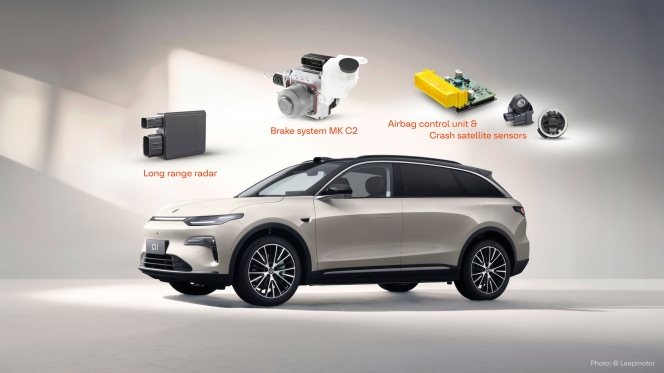
Aumovio has entered a supply agreement with Chinese electric vehicle manufacturer Leapmotor to provide safety components for the carmaker’s B and C platforms.
Several models within Leapmotor’s B platform now utilise Aumovio's long-range radar, electric parking brake and airbag control unit (ACU). Models on the C platform, including the C10, C11 and C16 SUVs, feature the latest generation of the MK C2 one-box brake system, alongside the long-range radar and ACU.
The project was completed with a development cycle approximately one-third shorter than traditional automotive timelines. Aumovio attributed its speed to ‘local-for-local’ strategy in China, where the company operates 20 sites and employs around 10,000 staff. In 2024, Aumovio held a 14 percent share of market revenue in the region.
The supplied technologies include:
- MK C2 Brake System: A unit combining the master cylinder, electronic brake system, and brake booster. It is produced locally in Shanghai.
- Long-Range Radar: A sensor with a detection range of up to 280 metres, used for driver assistance across both platforms.
- Airbag Control Unit (ACU): Integrated with crash satellite sensors, these components are manufactured in Changchun.
Boris Mergell, Head of the Safety and Motion business area at Aumovio, said, “Pairing ‘China speed’ with ‘German quality’ technologies helped us to support a rapid roll-out with our latest safety technologies. This underscores Aumovio’s course towards an adaptive powerhouse that works flexibly and closely with customers to innovate. It also shows that we continue to strengthen our customer relationships in the important market China.”
The partnership supports Leapmotor’s international presence. The B10 and B05 models, which feature Aumovio's ACU and radar technology, were showcased at the IAA 2025 in Munich as part of the manufacturer's European entry.
LTTS Secures Multi-Year Deal From Automotive OEM For Engineering And R&D
- By MT Bureau
- January 28, 2026
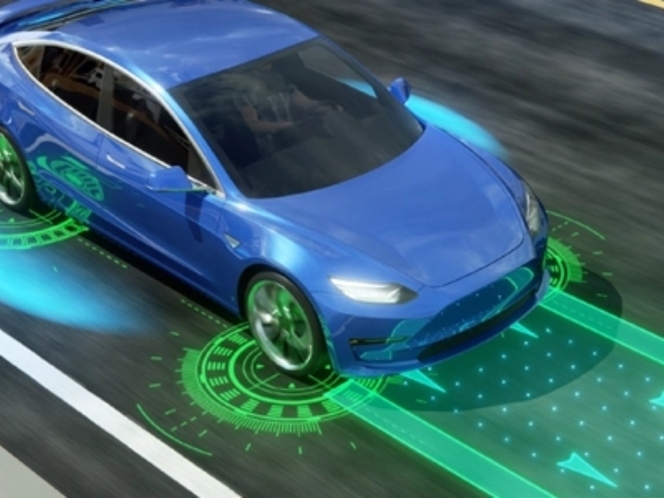
Bengaluru-headquartered ER&D company L&T Technology Services (LTTS) has announced a multi-year engagement within its mobility segment from an automotive manufacturer. The agreement involves software, connectivity and digital engineering services across vehicle technology domains. This win follows the company’s investments in R&D labs and mobility infrastructure designed for programs with global manufacturers.
The engagement covers mobility engineering capabilities, including embedded systems, digital platforms, verification and validation, cloud integration and cybersecurity. LTTS intends to use its engineering expertise and delivery frameworks to support the customer's technology roadmap.
At present, LTTS operates 22 design centres and 100 innovation labs globally.
The agreement strengthens the partnership between LTTS and the automotive manufacturer in the area of mobility engineering. The company provides design, development, and testing services across the mobility, sustainability, and tech segments.
Alind Saxena, Executive Director and President, Mobility and Tech at L&T Technology Services, said, “We are proud to deepen our partnership with the valued customer through this strategic engagement. LTTS brings together domain-led engineering, secure development practices and excellence in global delivery to accelerate the future of premium mobility. The win reflects the trust placed in our teams and our commitment to delivering world-class engineering at scale”.
Valeo And NATIX Network Partner To Develop Open-Source World Foundation Model
- By MT Bureau
- January 25, 2026
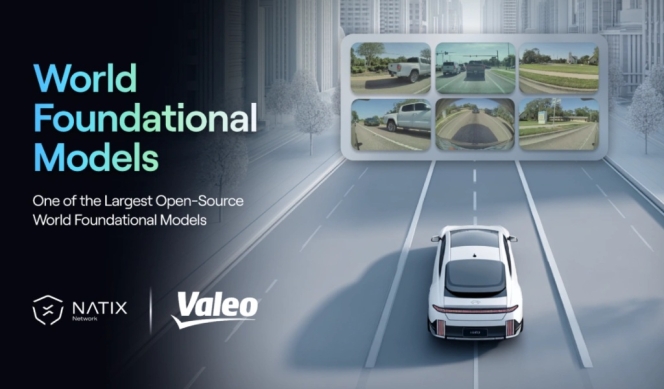
French technology company Valeo and NATIX Network have announced a partnership to develop a multi-camera World Foundation Model (WFM). The project combines Valeo’s research in artificial intelligence and generative modelling with NATIX’s decentralised physical infrastructure network (DePIN) to create an open-source platform for autonomous driving and robotics.
The initiative aims to move beyond perception-based models by creating a system capable of predicting future states and reasoning about physical interactions in a four-dimensional environment. The model will be trained using NATIX’s data network, which has collected 600,000 hours of video data across the US, Europe and Asia over seven months. This data provides the multi-camera inputs necessary for the spatial perception required by autonomous vehicles and robots.
The partnership builds upon Valeo’s existing open-source frameworks, VaViM (Video Autoregressive Model) and VaVAM (Video-Action Model). While these frameworks were previously trained primarily on front-camera datasets, the integration of NATIX’s multi-camera network expands the AI’s field of vision to 360 degrees.
Under the open-source framework, the partners will release models, datasets and training tools. This approach is intended to allow the research community to fine-tune models and benchmark physical AI across various driving conditions and geographic regions. The collaboration seeks to accelerate the deployment of end-to-end AI models by learning from real-world edge cases captured by vehicles in operation.
Marc Vrecko, Chief Executive Officer, Valeo’s Brain Division, said, “Since our creation in 2018, Valeo’s AI research center has been at the forefront of AI research in the automotive industry, especially in the fields of assisted and autonomous driving. Our goal has always been to advance mobility intelligence safely and responsibly. By combining Valeo’s generative world modeling research expertise with NATIX’s global multi-camera data, we are accelerating both the quality and the accessibility of next-generation end-to-end AI models, enabling the research community to build upon strong open models.”
Alireza Ghods, CEO and Co-Founder, NATIX, added, “WFMs are a once-in-a-generation opportunity — similar to the rise of LLMs in 2017–2020. The teams that build the first scalable world models will define the foundation of the next AI wave: Physical AIs. With our distributed multi-camera network, NATIX has a clear advantage of being able to move faster than large OEMs.”







Comments (0)
ADD COMMENT